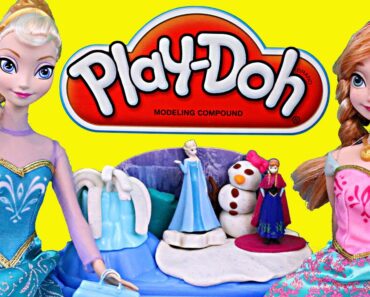Young children are sensitive to several factors in their surroundings, which could break or make their self-confidence. Hence, it is important to understand how to build confidence in kids to create a secure self-image. Being confident is essential for children since it plays a major role in determining their success in academics and other fields of interest. It also enables them to confront their challenges to reach their long-term goals. This article will help you understand how to build confidence in kids and offer some confidence-building activities for children.
How To Build Confidence In Children
Building confidence in children requires consistent effort and acknowledgment. As children grow older, their self-esteem and confidence reflect in their personalities and eventually shape their lives. So here are some tips to help build a child’s confidence (1):
- Be a role model: Show your child how to be smart and confident through how you overcome difficult situations. Even when you don’t feel your best, try to carry yourself with confidence and set an example for them.
- Avoid getting excessively upset: Getting upset over minor things that don’t work out as planned will set a bad example for your child. Instead, pick yourself up and face situations with a positive approach.
- Express your love: Children require love and attention, the lack of which may cause them to assume that they are incapable of being loved. This may affect their overall confidence and hinder their personality development.
- Cheer for their successes: When your child accomplishes a task, even a small one, acknowledge it and appreciate them. Even the little achievements are big, so ignoring them may demotivate them.
- Allow imperfections: Often, things may not go as planned, leading to small disturbances in your child’s development. Your child needs your support and encouragement to overcome those setbacks confidently in such situations.
- Let them showcase their ideas: Encourage your child to talk and express how they feel about things. They will only respect you and your ideas if you do the same for them. In addition, giving them the confidence to speak up boosts their self-esteem.
- Encourage them to try something new: Allow them to find their interests early on. For example, introduce a physical activity or various hobbies, such as dance, music, sports, or craft, and let them choose their favorite.
- Acknowledge their differences: Each child has different abilities. Some may be more intellectually smart, while some may be creative or excel in sports. Help them shine in the field they choose instead of forcing them to pursue your interests.
- Teach them how to embrace failure: Young children may be demotivated after experiencing failure. Thus, they should learn how to deal with failure, stand up, and try harder. As parents, be supportive and encourage them to keep trying.
- Applaud their perseverance and hard work: When your child has worked consistently toward achieving something, applaud their hard work even if they don’t achieve their goal. This shows that winning is not as important as learning from the experience.
- Set achievable goals: Unrealistic goals only cause children to feel demotivated and stop trying if they don’t achieve them. Therefore, set short-term goals and plan easy targets that your child can achieve with some effort. The sense of accomplishment they experience will motivate them to work harder.
- Don’t compare them to others: Accept your child for what they are. Drawing comparisons with other children leads to insecurity and jealousy. It also restricts the child from mastering the skills they are interested in.
- Allow independent decision-making: Give your child space to make small decisions independently. This empowers them and makes them feel eligible to control small tasks in their daily life.
- Focus on their strengths: Instead of pointing out their faults and weaknesses, pay attention to their strengths. Then, encourage them to use those strengths to improve themselves. This will motivate them to perform better in their favorite activities.
- Give them responsibilities: Start by assigning them small tasks around the household, such as watering the plants every day. Even if they do not enjoy the chores, they will unknowingly gain confidence from feeling needed around the house.
Confidence Building Activities For Children
Here are some fun activities to help boost confidence in children:
1. Mirror box
For this activity, you need a cardboard box and a mirror. Make a hole in one side and place the mirror facing the opposite side of the hole. Now, ask each child to look inside the box individually and tell you what they see. When they see themselves in the mirror, tell them that they are looking at the most special person. Loving themselves is the key to a more confident and secure personality.
2. Organizing
Get a paper, pencils, and a ruler. Ask the children to draw four columns: one each for the date, serial number, task to be done, and the deadline. This activity will help them organize their priorities. When they are clear about what needs to be done, they will approach tasks more confidently.
3. Self-description
In this group activity, each child should describe themselves positively in five lines. Once done, the group must discuss and add one more line to those five lines. This will make the children feel acknowledged and liked by their peers, boosting their confidence.
4. Dance to the rhythm
Most kids love to dance, but some may be too shy to loosen up. This activity requires you to blindfold all the children and ask them to shake to the music you play. When the children realize no one is watching them, they will feel less shy and let themselves loose. This boosts their confidence by making them comfortable to loosen up.
5. Story building
Encourage children to speak up with this storytelling activity. Start by framing the first sentence, and then ask each child to pitch in by adding the next line to the story. Ensure that everyone receives a turn. Public speaking helps children be more bold and articulate in front of a crowd, thus boosting their confidence.
6. Self-assessment
This activity can be done at the end of each day. Take five minutes to ask the child to remember everything they did throughout the day. Now, ask them if they believe they were good, bad, or moderate and how they can improve themselves the next day. This activity is a great way to deal with issues regarding esteem in children and builds a sense of competence.
Conclusion
Some kids acquire confidence quite naturally, whereas others may struggle with a lack of confidence. A confident child is more likely to think positively, have a strong self-image, and accomplish tasks more efficiently. In addition, the attitude parents instill in young children helps shape their personality. Therefore, the earlier you start building confidence and healthy self-esteem in children, the better and more beneficial it is for their future.
References:


































